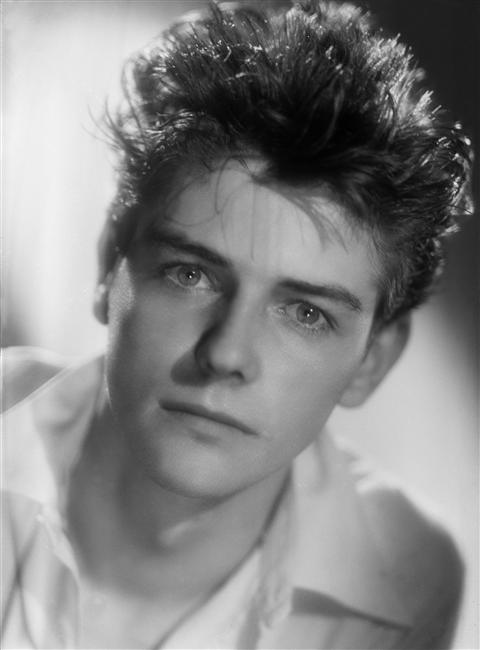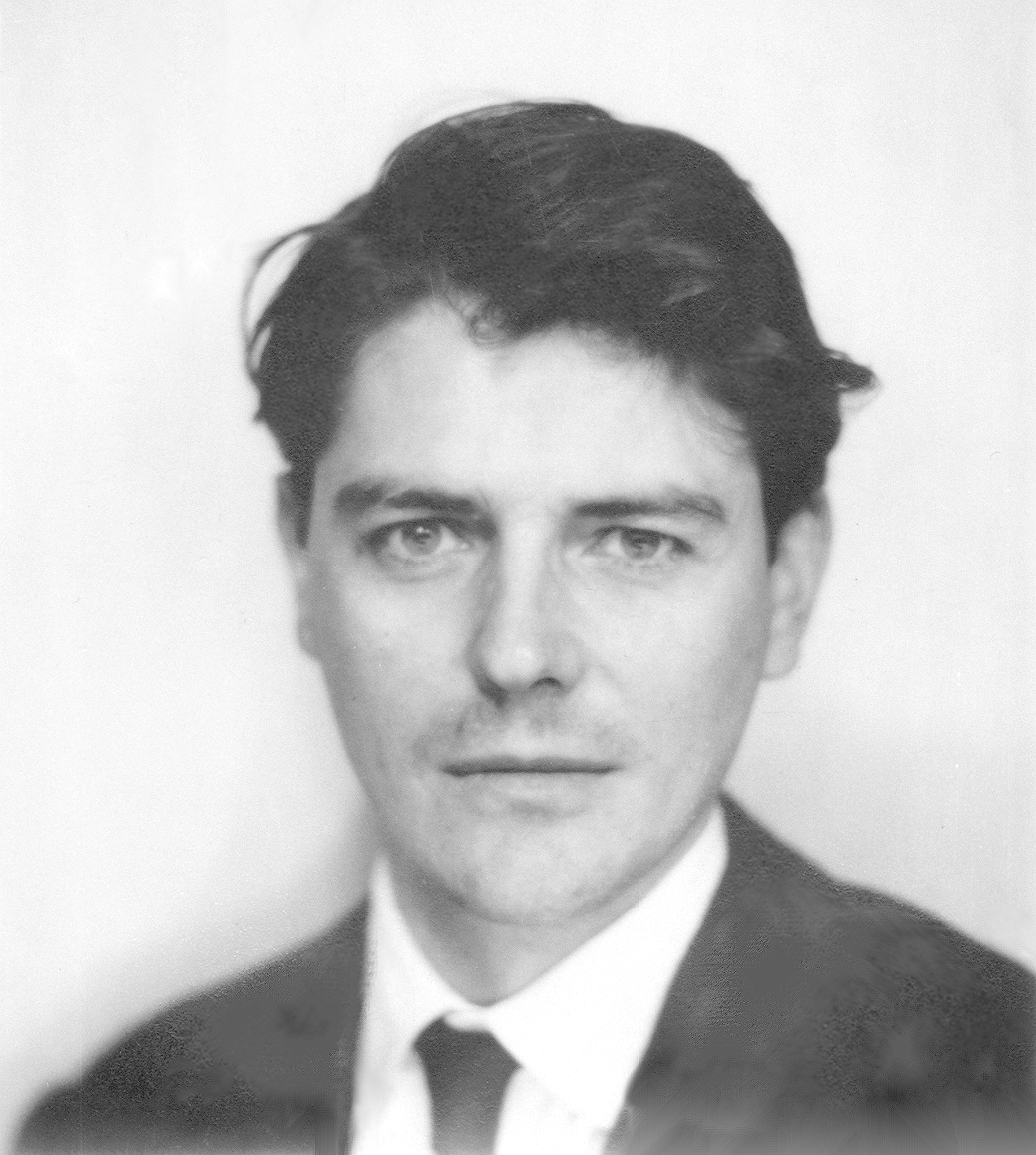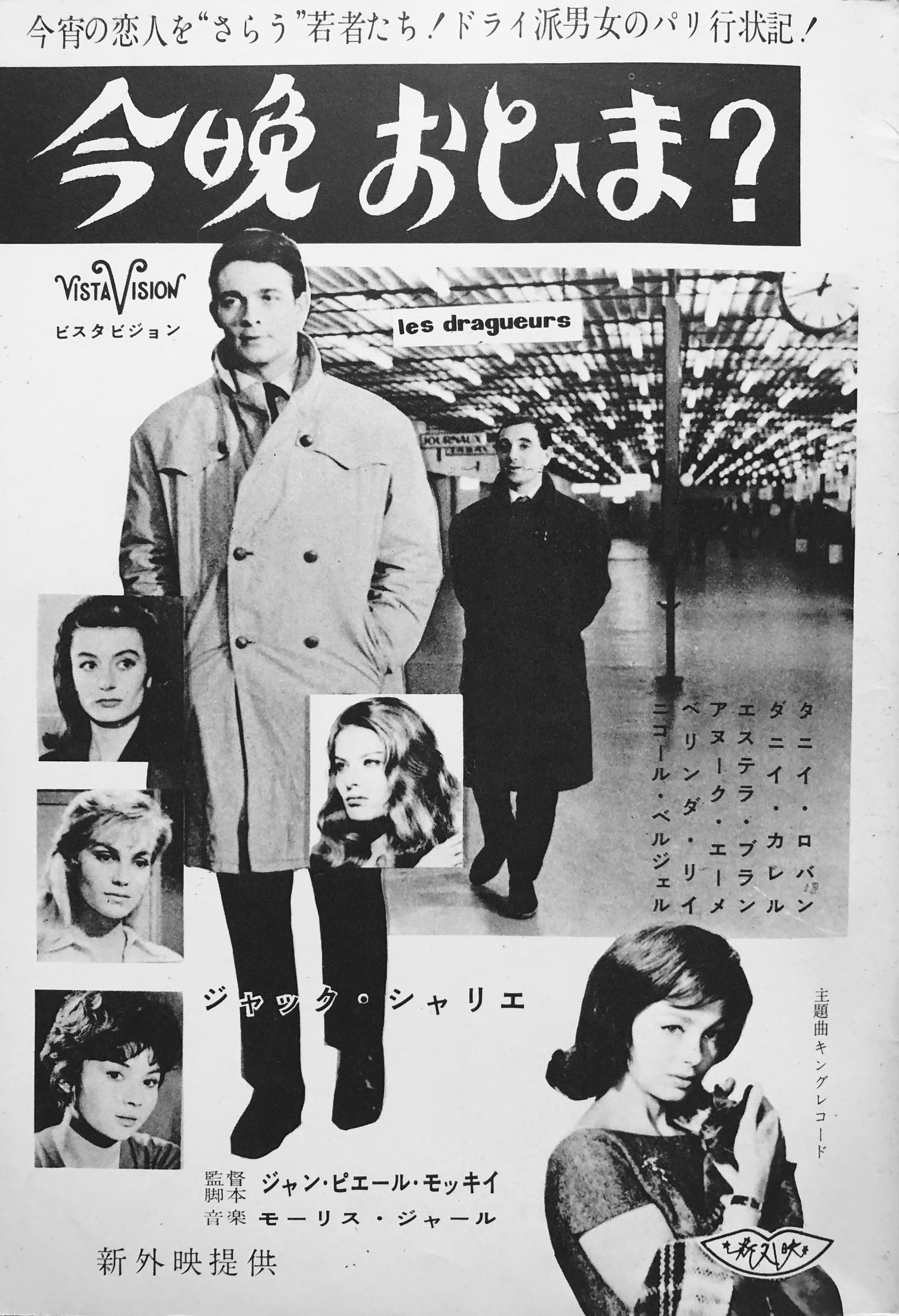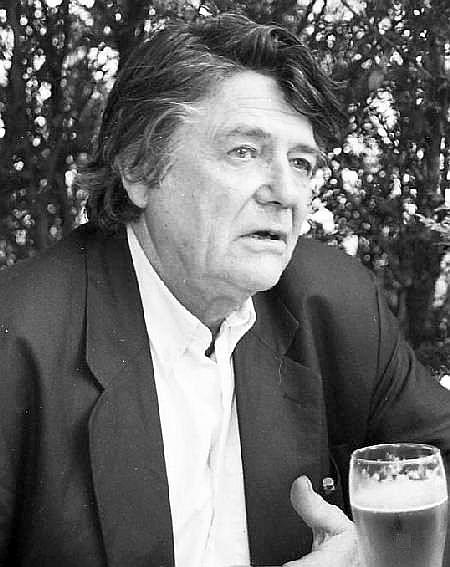1. Life and Background
Jean-Pierre Mocky's early life and family background provided the foundation for his unique artistic perspective and independent spirit in filmmaking.
1.1. Early Life and Education
Jean-Pierre Mocky was born on July 6, 1929, in Nice, France. His artistic journey began early, with his first uncredited film appearance as an extra in Marcel Carné's 1942 film Les Visiteurs du Soir. During and after World War II, he supported himself by working as an actor and a taxi driver. A chance encounter with the acclaimed actor Pierre Fresnay, who was a passenger in his taxi, led to Fresnay becoming a mentor and patron to Mocky. This mentorship paved the way for Mocky's formal training at the Paris Conservatoire, where he studied under the renowned director and actor Louis Jouvet. During his time at the Conservatoire, Mocky became close friends with Jean-Paul Belmondo. To avoid confusion with Belmondo's similar-sounding name, he decided to adopt the stage name "Jean-Pierre." In 1952, he was discovered by the Italian director Michelangelo Antonioni, who cast him in the French segment of his 1953 omnibus film I vinti (The Vanquished). This role significantly boosted Mocky's acting career in Italy, leading to numerous appearances in Italian films. He also gained valuable experience working as an assistant director for prominent Italian filmmakers, notably with Luchino Visconti on his 1954 film Senso and with Federico Fellini on his critically acclaimed 1954 film La Strada. In 1958, Mocky met leading figures of the French New Wave movement, including Claude Chabrol, François Truffaut, and Jean-Luc Godard. Despite being a contemporary and having friendly relations with them, Mocky consciously maintained a distance from the Nouvelle Vague movement, forging his own distinctive path in French cinema.

1.2. Family and Origins
Born as Jean-Paul Adam MokiejewskiFrench, Jean-Pierre Mocky was the son of Polish immigrant parents: Jeanne Zylinska and Adam Mokiejewski. His family background was diverse, with his father being Jewish and his mother being Catholic. This heritage provided a rich cultural backdrop to his life and work.
2. Film Career
Jean-Pierre Mocky's film career was marked by his prolific output as both an actor and, more notably, a director, screenwriter, and producer.
2.1. Acting Career
Mocky began his acting career in the late 1940s, appearing in both cinema and theater productions. His early film roles included *Les Casse-pieds* (1948) directed by Jean Dréville, *Orphée* (1950) by Jean Cocteau, and *The Mask of the Gorilla* (1957) by Bernard Borderie. He gained significant recognition in Italy through his role in Michelangelo Antonioni's *I vinti* (1953). Over his career, Mocky appeared in numerous films, including many of his own directorial works such as *Solo* (1970), *L'Albatros* (1971), *L'Ombre d'une chance* (1973), and *Un Linceul n'a pas de poches* (1974). He also starred in films by other notable directors, including Georges Franju's *La Tête contre les murs* (1959), which he co-wrote, and Jean-Luc Godard's *Prénom Carmen* (1983) and *Grandeur et décadence d'un petit commerce de cinéma* (1986). His acting roles often complemented his directorial themes, showcasing his versatility.
2.2. Directing Career
Mocky's directorial debut came with the 1959 film *Les Dragueurs* (The Girl Hunters). He had initially intended to direct *La Tête contre les murs* (1959), a film he wrote based on Hervé Bazin's novel and for which he acquired the film rights, but the producer ultimately entrusted the direction to Georges Franju. For *Les Dragueurs*, Mocky had envisioned his friend Jean-Paul Belmondo in the lead role, but the production company insisted on casting the then-popular Jacques Charrier.

In the 1960s, Mocky achieved widespread popularity with his "crazy comedies" such as *A Funny Parishioner* (1963) and *La Grande Lessive* (1968). Following the social upheaval of May 68, his films took a darker turn, reflecting a more critical and cynical view of society. This period included *Solo* (1969), which depicted a group of young anarchists, and *L'Albatros* (1971), a critique of political corruption.
The 1980s saw a resurgence in his success with films that continued his social commentary. *À mort l'arbitre* (1984) denounced the excesses of football fans, notably a year before the tragic Heysel Stadium disaster. His 1987 comedy *Le Miraculé* satirized the hypocrisy surrounding the pilgrimage to Lourdes. This film was also entered into the 37th Berlin International Film Festival. Despite facing less commercial success in the 1990s and 2000s, Mocky remained highly enthusiastic and continued to direct films prolifically until his death. His independent spirit was further demonstrated by his decision to purchase a cinema in the Strasbourg-Saint-Denis district of Paris, where he screened his own films alongside a selection of B-movies. He also took an active role in releasing most of his works on DVD with a unified design.

2.3. Film Style and Themes
Jean-Pierre Mocky's cinema is characterized by its strong satirical bent and its grounding in the realities of society. His films often served as a critique of societal hypocrisy, exploring various aspects of human nature and social issues. Early in his career, his films frequently addressed the theme of uprising against societal restrictions. Later, he often focused on farce, using humor to highlight absurdities and societal flaws. A notable example is *Bonsoir* (1992), where a homeless man pretends to be the lover of a lesbian character to help her secure her inheritance from homophobic relatives.
Mocky was known for his distinctive production methods: he typically worked with limited resources and filmed at a very rapid pace, contributing to the raw and immediate feel of his movies. Despite being a contemporary of the French New Wave directors and having personal connections with them, Mocky consciously maintained a distance from their movement, developing his own unique and independent cinematic voice.
2.4. Collaborations
Throughout his extensive career, Jean-Pierre Mocky collaborated with many prominent figures in French cinema. He frequently worked with actors such as Bourvil, who appeared in four of his films including *A Funny Parishioner*, *The City of Unspeakable Fear*, *La Grande Lessive*, and *The Stallion*. Other frequent collaborators included Fernandel (in *The Exchange* and *Life*), Michel Simon (in *The Red Ibis*), Michel Serrault (in twelve films, including *Le Miraculé*), Francis Blanche (in five films, including *The City of Unspeakable Fear*), Jacqueline Maillan (in five films), and Jean Poiret (in eight films). He also directed acclaimed stars like Catherine Deneuve (in *Agent Trouble*), Claude Jade (in *Bonsoir*), Jane Birkin (in *Noir comme le souvenir*), Jeanne Moreau (in *Le Miraculé*), and Stéphane Audran (in *The Seasons of Pleasure*).
3. Awards and Recognition
Jean-Pierre Mocky received several awards and honors throughout his career, recognizing his significant contributions to French cinema.
In 2010, he was awarded the Prix Henri-Langlois for his entire body of work, acknowledging his long and impactful career. He also received the Alphonse Allais Prize in 2013. His work was further celebrated through dedicated retrospectives. The International Festival of Film Entrevues in Belfort organized a full retrospective of his films in 2012, and the Cinémathèque française followed suit with another comprehensive retrospective in 2014. Mocky was also a "perpetual guest" of the Festival Polar de Cognac, a crime film festival, where he was honored with a Polar lifetime achievement award in 2015.
4. Filmography
Jean-Pierre Mocky had an extensive filmography as both a director and an actor.
4.1. Director
- 1959: Les Dragueurs starring Jacques Charrier, Charles Aznavour
- 1960: Un couple starring Juliette Mayniel, Francis Blanche
- 1961: Snobs ! starring Véronique Nordey, Francis Blanche
- 1962: Les Vierges starring Charles Aznavour, Jean Poiret
- 1963: Un drôle de paroissien starring Bourvil, Jean Poiret
- 1964: La Grande Frousse / La Cité de l'Indicible Peur starring Bourvil, Francis Blanche
- 1966: Your Money or Your Life starring Fernandel, Heinz Rühmann
- 1966: Les Compagnons de la marguerite starring Claude Rich, Michel Serrault
- 1968: La Grande Lessive starring Bourvil, Francis Blanche
- 1969: Solo starring Jean-Pierre Mocky, Anne Deleuze
- 1970: L'Étalon starring Bourvil, Francis Blanche
- 1971: L'Albatros starring Jean-Pierre Mocky, Marion Game
- 1972: Chut starring Jacques Dufilho, Michael Lonsdale
- 1973: L'Ombre d'une chance starring Jean-Pierre Mocky, Robert Benoit
- 1974: Un Linceul n'a pas de poches starring Jean-Pierre Mocky, Myriam Mézières
- 1975: L'Ibis rouge starring Michel Serrault, Michel Simon
- 1976: Le Roi des bricoleurs starring Sim, Michel Serrault
- 1978: Le Témoin starring Alberto Sordi, Philippe Noiret
- 1979: Le Piège à cons starring Jean-Pierre Mocky, Catherine Leprince
- 1982: Litan starring Jean-Pierre Mocky, Marie-José Nat
- 1982: Y a-t-il un Français dans la salle ? starring Victor Lanoux, Jacques Dutronc
- 1983: À mort l'arbitre starring Michel Serrault, Eddy Mitchell
- 1985: Le Pactole starring Richard Bohringer, Patrick Sébastien
- 1986: La Machine à découdre
- 1987: Le Miraculé starring Michel Serrault, Jeanne Moreau
- 1987: Agent trouble starring Catherine Deneuve, Richard Bohringer
- 1987: Les Saisons du plaisir starring Charles Vanel, Denise Grey
- 1988: Une nuit à l'Assemblée Nationale starring Michel Blanc, Jacqueline Maillan
- 1988: Nice is Nice (short movie)
- 1988: Méliès 88
- 1988: Divine enfant starring Laura Martel, Jean-Pierre Mocky
- 1990: Il gèle en enfer starring Jean-Pierre Mocky, Laura Grandt
- 1991: La Méthode Barnol (short movie)
- 1991: La vérité qui tue (short movie)
- 1991: Dis-moi qui tu hais (short movie)
- 1991: Ville à vendre starring Tom Novembre, Michel Serrault
- 1992: Le Mari de Léon
- 1992: Bonsoir starring Michel Serrault, Claude Jade
- 1995: Noir comme le souvenir (Black for Remembrance) with Jane Birkin, Sabine Azéma, Matthias Habich
- 1997: Robin des mers
- 1997: Alliance cherche doigt
- 1998: Vidange
- 1999: Tout est calme
- 1999: La candide madame Duff
- 2000: Le Glandeur
- 2001: La Bête de miséricorde
- 2002: Les Araignées de la nuit
- 2003: Le Furet starring Michel Serrault, Jacques Villeret
- 2004: Touristes, oh yes !
- 2004: Les Ballets écarlates
- 2005: Grabuge! starring Michel Serrault, Charles Berling
- 2006: Le Deal
- 2007: Le Bénévole starring Michel Serrault, Jean-Claude Dreyfus
- 2007: 13 French Street
- 2007: Le Diable en embuscade (short movie)
- 2010: Colère (TV film) starring Mathieu Demy, Robin Renucci
- 2011: Crédit pour tous
- 2011: Les Insomniaques
- 2011: Le dossier Toroto
- 2012: À votre bon cœur, mesdames
- 2013: Le Mentor
- 2013: Dors mon lapin
- 2013: Le Renard jaune
- 2014: Le Mystère des jonquilles
- 2014: Calomnies
- 2015: Tu es si jolie ce soir
- 2015: Les Compagnons de la pomponette
- 2015: Monsieur Cauchemar starring Jean-Pierre Mocky
- 2016: Le Cabanon rose
- 2016: Rouges étaient les lilas
- 2017: Vénéneuses
- 2017: Votez pour moi
- 2019: Tous flics !
4.2. Actor
- 1942: Les Visiteurs du Soir (uncredited extra)
- 1946: The Eternal Husband
- 1948: Les Casse-pieds
- 1949: Le Paradis des pilotes perdus
- 1950: God Needs Men
- 1950: Wedding Night
- 1950: Orphée
- 1953: I vinti
- 1954: Stain in the Snow
- 1954: The Big Flag
- 1954: Le Comte de Monte-Cristo
- 1954: Senso (also assistant director)
- 1955: Gli Sbandati
- 1957: Le rouge est mis
- 1957: The Mask of the Gorilla
- 1958: Le Gorille vous salue bien
- 1959: La Tête contre les murs (also screenwriter)
- 1963: Un drôle de paroissien (also director, screenwriter)
- 1969: Solo (also director, screenwriter)
- 1974: Un Linceul n'a pas de poches (also director, screenwriter, producer)
- 1975: L'Ibis rouge
- 1982: Litan (also director, screenwriter, producer, editor)
- 1983: Prénom Carmen
- 1984: À mort l'arbitre (also director, screenwriter, editor)
- 1985: Le Pactole (also director, producer, screenwriter)
- 1986: Grandeur et décadence d'un petit commerce de cinéma
- 1998: Vidange (also director)
- 2007-2013: Myster Mocky présente (TV series, also screenwriter, episode director)
- 2007: In the Tracks of Maurice Jarre
- 2011: Americano
- 2015: Monsieur Cauchemar (also director, screenwriter)
5. Bibliography
- Prédal, René (1988). Jean-Pierre Mocky. Lherminier/Quatre-Vents.
- Haustrate, Gaston (1989). Entretiens avec Jean-Pierre Mocky. Édilig.
- Le Roy, Éric (2000). Jean-Pierre Mocky. Bibliothèque du film/Durante. (Series: Ciné-regards)
6. Death
Jean-Pierre Mocky died on August 8, 2019, in Paris, France, at the age of 90. His cause of death was attributed to kidney failure.

7. Influence and Evaluation
Jean-Pierre Mocky left a significant mark on French cinema through his unique and uncompromising approach to filmmaking. He was an independent spirit who consistently challenged societal norms and exposed hypocrisy through his satirical lens. His ability to produce a vast number of films with limited resources and at a rapid pace set him apart from many of his contemporaries. Despite sometimes facing commercial challenges, particularly in his later career, Mocky's dedication to his craft remained unwavering. His decision to acquire and operate his own cinema in Paris and personally oversee the DVD releases of his films further underscored his commitment to artistic autonomy and direct engagement with his audience. While he maintained a deliberate distance from the influential French New Wave movement, his work shared a common thread of questioning established conventions, albeit through his distinct style of social critique and often dark humor. Mocky's legacy lies in his prolific output, his sharp social commentary, and his enduring example as a filmmaker who prioritized his vision over commercial trends, making him a unique and important figure in French cinematic history.